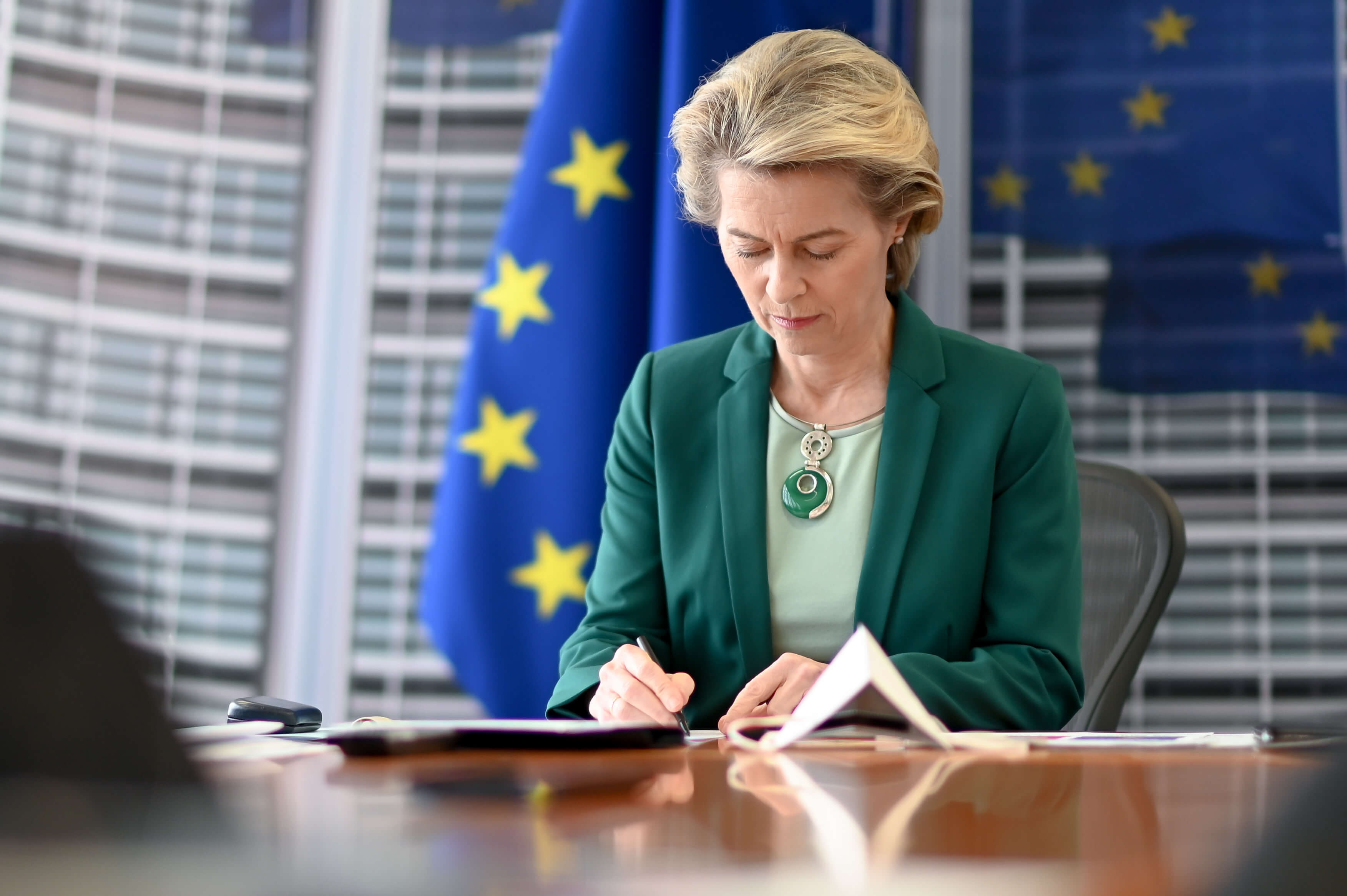The leaders of the EU and China will face a far lengthier list of issues at their next meeting in December than they faced during their last summit, which took place a year and a half ago.
The forthcoming EU-China summit, scheduled for December 7 and 8, will happen in an even less favourable environment. It is still burdened by Russia’s aggression against Ukraine, as a central geopolitical division between the EU and China, but also by the escalation in the Middle East after the terrorist attacks by Hamas on Israel.
EU leaders Charles Michel and Ursula von der Leyen will meet in Beijing with Chinese leader Xi Jinping and Premier Li Qiang.
Considering that the Europeans await spring elections and the subsequent formation of the highest institutions, this summit will most probably be the final one in this form.
EU leaders will travel to Beijing with the priority goal of reducing the still substantial imbalance in mutual trade and the excessive dependence of the European economy on Chinese imports.
China's surplus in trade with Europe last year reached a record level of about $430 billion, forcing the EU to initiate some restrictive mechanisms attempting to equalise the exchange level.
A tougher EU course
In this respect, Europe has tightened its course regarding China, for example, by launching an investigation and announcing restrictions on the import of electric vehicles, considering that due to state subsidies, they undermine the growing European market and illegally make the position of European manufacturers more difficult.
Also, Europeans have numerous objections to the treatment of their investments in China, such as the equipment manufacturer for the 5G telecommunications network, whose market share fell below 10% due to domestic pressures.
According to the European Commission, various restrictions on investors caused even a third of them to record a drop in income in the last year, and two-thirds expect their troubles in doing business in China would increase even more in the next year.
“China has increasingly resorted to trade coercion, boycotts of European goods, and export controls on critical raw materials”, said Ursula von der Leyen, head of the European Commission, in Brussels.
Beijing is currently the focus of a somewhat more difficult European course. This raises expectations regarding the increasing list of problems in economic relations and their reduction to the benefit of EU interests.
 Ursula von der Leyen: We will keep engaging with China on how we can make competition fairer and more disciplined
Ursula von der Leyen: We will keep engaging with China on how we can make competition fairer and more disciplined
In the past year, China did not meet the expectations of a strong recovery of its economy after a 3-year lockdown due to the COVID-19 pandemic. However, despite this, it continued a rigid relationship with principal foreign partners, including the EU as one of the largest.
This makes it vulnerable in trade negotiations, as it reduces its capacity to threaten economic retaliation, which it has so often resorted to during Xi's reign, particularly towards the EU.
“What has been encouraging about European policy responses to China this year is that they haven’t been shaped, as was often the case in past years, by fears of retaliation from Beijing”, assessed Noah Barkin from the German Marshal Fund of the US.
The announcement that more Chinese companies might be subject to EU sanctions because they support sanctions against Russia could be one of the principal roadblocks in the forthcoming negotiations in Beijing.
The EU had already given in to Beijing once, when last June, during the adoption of the 11th package of sanctions against Russia, it complied with China's demands and reduced the list of Chinese companies subject to sanctions from 8 to 3.
Beijing will surely try to do the same again in 3 weeks, but this time, this will be much more difficult than last June.
Just before the summit, the EU Commission announced that as much as 70% of the total circumvention of sanctions against Russia goes through Chinese companies, including militarily sensitive goods that increase the capacity of the Russian army in its aggression against Ukraine.
Alignment with the US position
The recent US-China summit in San Francisco, where the Chinese leader signalled a relaxation of the policy of economic pressures and a readiness to satisfy Western requests, will represent a support for the EU leaders during the talks in Beijing.
Xi's effort in talks with US President Joe Biden to keep American investors from leaving the Chinese market could continue with Europeans in early December. Europeans certainly expect that.
“We will keep engaging with China on how we can make competition fairer and more disciplined. The story of how we relate to China is not yet fully written. Nothing is predetermined”, said Ursula von der Leyen.
The EU has an interest in tightening its course towards China, not only to protect the competitiveness of its own economic environment but also to equalise its position with the US in the year preceding the American elections.
Some significant obstacles in mutual trade between the Europeans and the US are still unresolved, for example, restrictions on European exports from the era of Donald Trump.
Alignment with the US position towards China would signal to Washington that there are no strategic differences in the EU regarding Beijing, as concluded from the actions of some European leaders, such as Emmanuel Macron, last year.